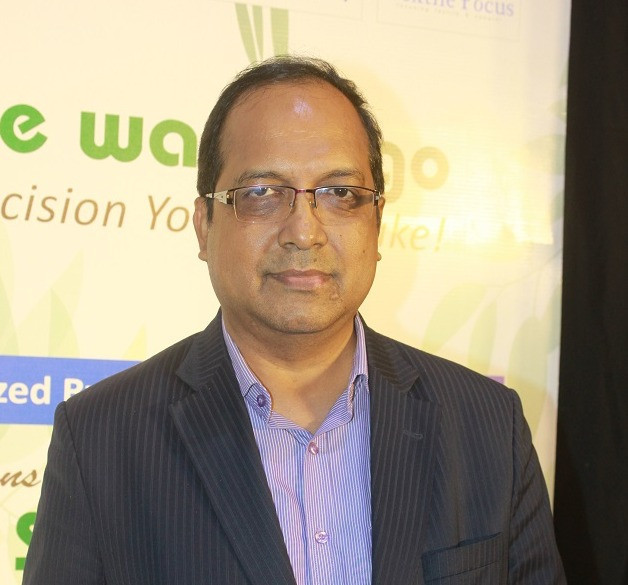Green building, also known as sustainable or eco-friendly building, refers to the practice of creating structures and utilizing processes that are environmentally responsible and resource-efficient throughout a building’s life cycle, from siting to design, construction, operation, maintenance, renovation, and demolition. The goal of green building is to reduce the overall impact of the built environment on human health and the natural environment.

On the other hand, greenwashing is a deceptive marketing or public relations practice used by companies to portray themselves as environmentally friendly or socially responsible when, in reality, they are not taking meaningful steps to reduce their environmental impact or improve their social responsibility. It involves misleading consumers into believing that a company’s products or practices are more sustainable or eco-friendly than they actually are.
Bangladesh Green Building Movement are very strong especially in Textile and RMG sector. Bangladesh now is the home of the Best LEED Green Building in the World (SM Sourcing, LEED Platinum with 106 Points) and also top 9 out of top 10 LEED Platinum certified factories of the World are in Bangladesh.
USGBC LEED is very comprehensive sustainable checklist evolved in last 30 years and became very popular Green Building Rating System in the World. LEED has worldwide acceptance as sustainable practice benchmark of any development. 183 Country and Territories in the World have LEED certified projects.
Worldwide fashion industry is one of the main sources of Carbon Emissions, Energy and Water Consumptions and Environment and Water pollutions. In fight to change and reduce Global Warming and Carbon Emission, Fashion Industry talking noticeable measures and as supply chain Bangladesh RMG sectors need to be and have to be part of it.
For that reason, the buyers of RMG from Bangladesh are encourage and give priority to LEED certified project. Bangladesh Government also encourages sustainable developments and practices with number of incentives such as “Sustainable Refinancing” at very low rate (5%) and Corporate Rate Discount (2%). Till today (23.03.2024) Bangladesh has 792 projects are registered with USGBC and among them 239 are certified (87 Platinum, 133 Gold, 15 Silver and 4 Certified as of 3.23.2024).
To satisfy buyers sustainability priority, getting preferences, qualifying for low-cost funding or corporate tax discount, a number of projects are pursuing LEED certifications. Unfortunately, few of these are pursuing LEED certificate for ornamental purposes without doing much and that is called ‘Greenwashing’.
LEED Green Building Concept when follow properly can provide significant benefits to the projects such as follow; –
- Reduce Building Construction Cost by 2% to 5% (New Building)
- Reduce Building Running Cost
- Reduce Construction Time by 20% to 30%
- Reduce Replacement Cost
- Reduce Cost of Investment or Loan by 5% to 7%
- Reduce Corporate Tax by 2%
- Global Benefits with less carbon emissions and higher acceptances
- Environmental Benefits with less energy, water and resources consumptions
- Improve “Indoor Environmental Quality” for Health & Productivity
- Improve Marketing Advantages with International Recognitions
- Improve Corporate Branding with ESG Reporting
- Improve Personal Satisfactions with Comprehensive Sustainable Practices
“If we understand LEED Green Building Concepts in a factual way, the cost is not an issue. If we analyze the costs and benefits in a meaningful way, we will see LEED Green Building Cost lees then regular buildings and create significant profits for the companies.”
If we do it right, Buyers do not need to pay more. Because we already saving energy, water, resources, replacement cost, cost of loan and with better Indoor Environment our productivities are increased and turnover rate are reduced.
On the other hand, achieving LEED Certificate with ‘Greenwashing’ will not create all above benefits and we may complain that ‘Buyers do not pay more’.
Greenwashing can undermine consumers’ trust in environmental claims and make it difficult for them to make informed choices. It’s important for consumers to critically evaluate the environmental claims made by companies and look for credible evidence to support those claims. Additionally, organizations and regulatory bodies may take measures to combat greenwashing and hold companies accountable for misleading marketing practices.

Principal LEED Consultant & MD – 360 TSL.
In summary, while “green” denotes authentic efforts toward environmental sustainability characterized by transparency, substantive actions, and long-term commitment, “greenwashing” refers to deceptive or superficial attempts to appear environmentally friendly without genuine commitment or meaningful action.
Bangladesh RMG sector is mostly depending on European Buyers and they abide by European Union rules and regulations. Recently European Union talking initiative to tackle ‘Greenwashing’ practices’ and asking for Sustainable Practices transparency and verifiable evidences.
In March 2022, the European Commission proposed to update EU consumer rules to support the green transition. In September 2023, Parliament and Council reached a provisional agreement on the updated rules.
MEPs approved the agreement in January 2024, followed by the Council the following month. EU countries have 24 months to incorporate the update into their national law.
So, we need to be ready and prepare for what is coming. We need to have better (digital) Energy and Water consumptions monitoring system, better sustainability practices parameters, innovative idea to reduce our overall carbon footprints and documentation to verify our claims.
“Go green, its create PROFITS”
















